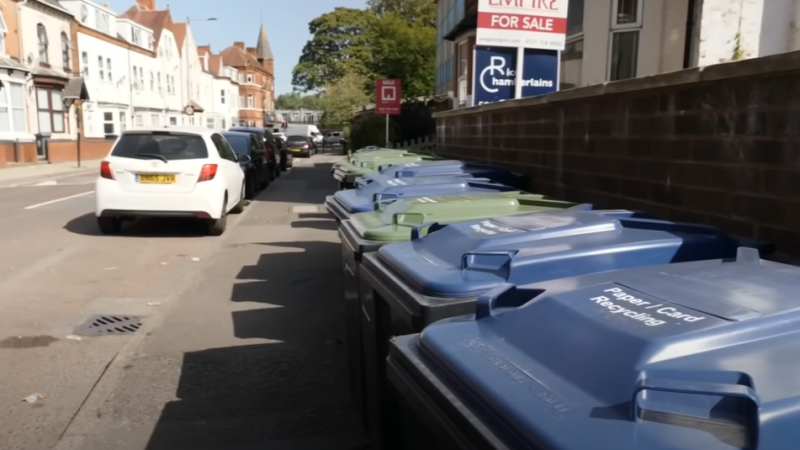‘After thirteen years of austerity, local authorities just don’t have the resources to devote to applying for funding for non-statutory duties such as climate change work.’

Broke councils across the country are having to scrap eco-friendly projects which could save families and businesses hundreds of pounds in energy bills and reduce carbon emissions.
Schemes that were originally designed to lower energy bills for households and businesses, while reducing carbon emissions, are being delayed or abandoned entirely, so that hard-up councils can avoid bankruptcy. Many councils have been forced to reduce the size of their climate change teams through hiring freezes and redundancies. Consequently, ongoing green projects are being put on hold or are being withdrawn, while bids for funding for new projects are not being put in place.
Earlier this month it was reported that at least 26 more local councils are at risk of going bankrupt before the next general election. Hastings, Kent, Southampton, Bradford, and Devon were among those named as being at risk. Warnings have been made that without a government that is invested in protecting local government as the service of the local people, more councils could fall.
In early September, Birmingham City Council, the largest local authority in Europe, declared itself bankrupt. It issued a Section 114 notice, which prevents councils from spending on anything other than what is considered an ‘essential service,’ such as the safeguarding of children and bin collection.
Years of government austerity has taken its toll on local authorities, with the likes of Birmingham suffering the consequences of debilitating cuts to its government funding. Between 2010/11 and 2019/2020, the city’s total income dropped by 17 percent, forcing the council to find savings of £736 million. With the population increasing by 7.5 percent, the need for local services, meanwhile, has increased. In October 2022, councillor Tim Oliver, chairman of the County Councils Network and Leader or Surrey County Council, laid bare the grim reality austerity has had on councils.
“Between 2010 and 2018 local government took the brunt of austerity, with councils seeing their budgets halved. A return to this has set off alarm bells for council leaders, who year after year delivered savings to reduce the national deficit.
“Considering inflation and demand is set to add £3.5bn to our costs, this would be worse than the period of austerity and devastating for local services. We will be left with unpalatable decisions, with many likely to have to resort to a very basic ‘core offer’ level of services despite this ultimately being a false economy and adversely hitting the most vulnerable in our society,” Cllr Oliver said.
Climate change projects are paying the price to cuts and are one of the areas worse affected by dwindling budgets.
Hastings Borough Council is also close to issuing a Section 114 due to spiralling homelessness costs. The council is battling with a reduced climate team.
Green councillor Julia Hilton told the i newspaper that, “Everything that isn’t to do with addressing the fact we’re in Section 114 territory has been put on hold for at least six months and probably longer.”
The authority failed to replace its climate action officer, and as a result, the council’s Solar for Business programme, designed to reduce the bills and carbon footprints of local businesses, by installing solar panels on their roofs, has faced significant underspending.
Northumberland Council tells a similar story. In 2022, the authority issued a Section 114 notice after identifying unlawful expenditure. Despite being home to “tens of thousands of homes with poor energy efficiency,” the council has a “very small retrofit team.”
Nick Morphet, a Green councillor within Northumberland Council, said the director with responsibility for climate change recently left the council after being asked to take a pay cut as part of a restructure to save money on salaries.
Morphet blames the Conservative government. “After thirteen years of austerity, local authorities just don’t have the resources to devote to applying for funding for non-statutory duties such as climate change work,” he said.
Gabrielle Pickard-Whitehead is a contributing editor to Left Foot Forward
Left Foot Forward doesn't have the backing of big business or billionaires. We rely on the kind and generous support of ordinary people like you.
You can support hard-hitting journalism that holds the right to account, provides a forum for debate among progressives, and covers the stories the rest of the media ignore. Donate today.



